Projects
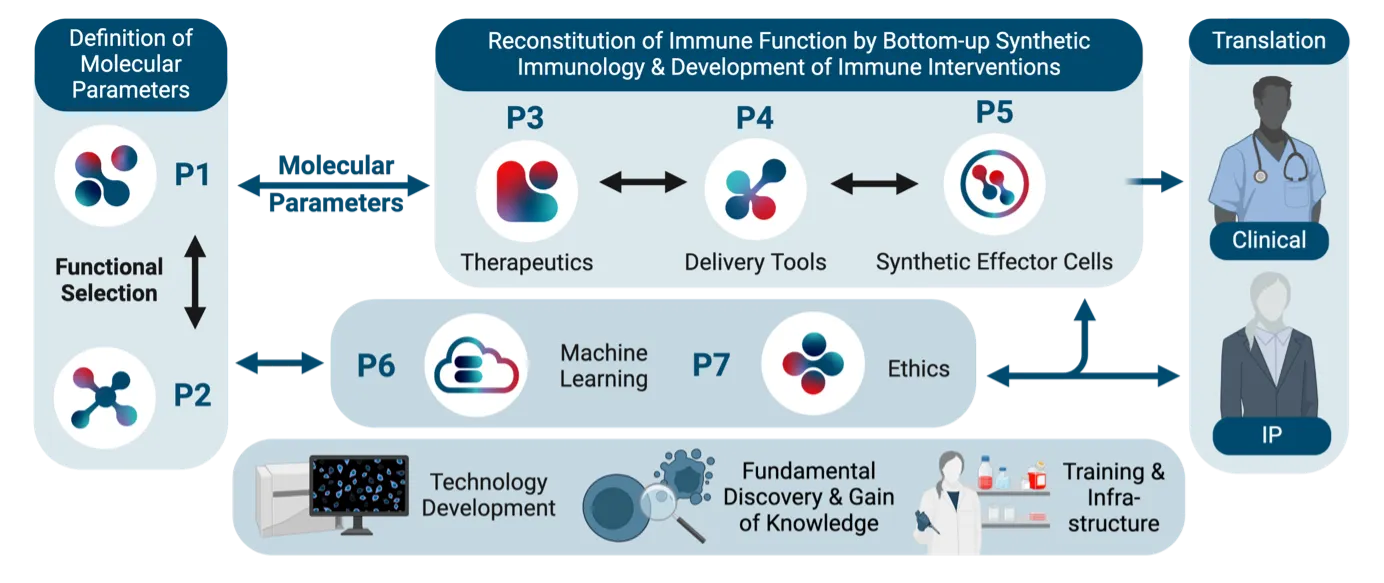
Project 1: Function-based Selection and Molecular Characterization of Highly Efficient Immune Cells
The specific aims of P1 are the identification of morphological and molecular parameters that determine elite immune function using new image-based sorting technologies as well as the identification and validation of key functional modules underlying elite immune function and use these for therapeutic targeting.
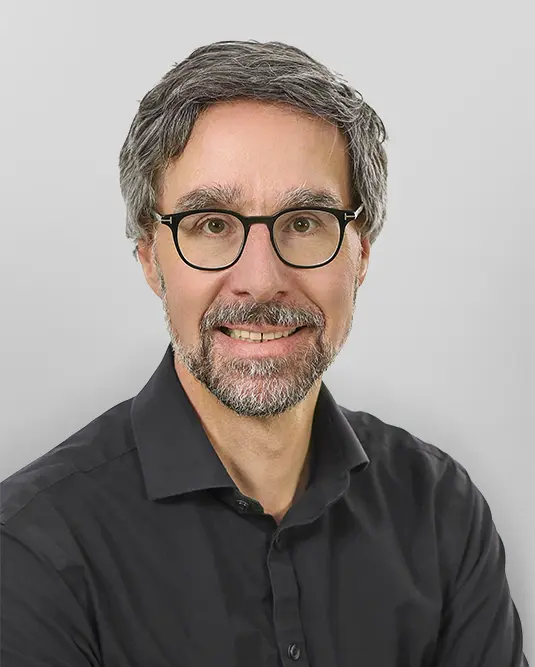
Michael Platten
Email:
michael.platten@medma.uni-heidelberg.de
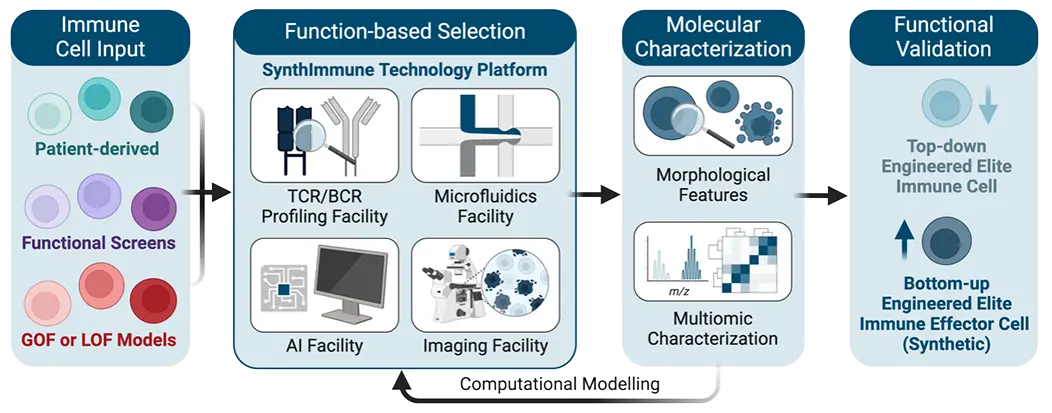
Integrative workflow from immune cells derived from patients, disease models and functional screens to functional selection and iterative identification of functional modules of elite immunity for generation of top-down engineered and bottom-up synthetic immune cell applications. GOF: gain-of-function; LOF: loss-of-function
Project 2: Microphysiological Model Systems
The specific aims of P2 are the improvement and exploitation of faithful bottom-up engineered and organotypic human-based microphysiological models to replace animal models as well as the definition of parameters that govern elite immunity in tissue and assess the efficacy of Synthlmmune preventives and therapeutics.
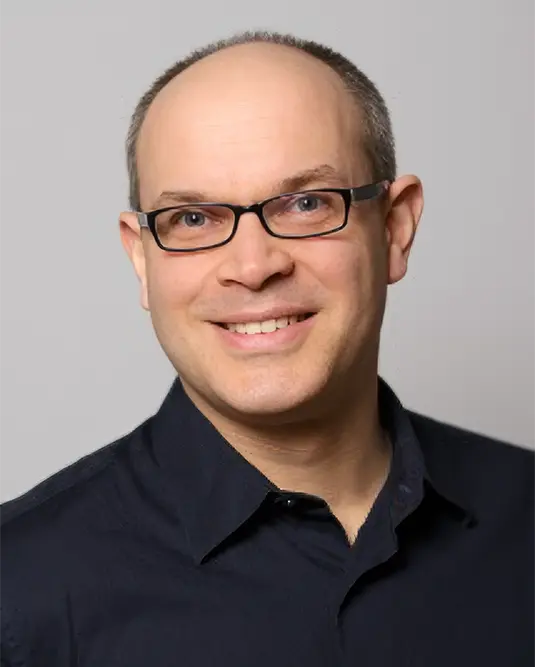
Prof. Dr. Oliver T. Fackler
Email:
Oliver.Fackler@med.uni-heidelberg.de
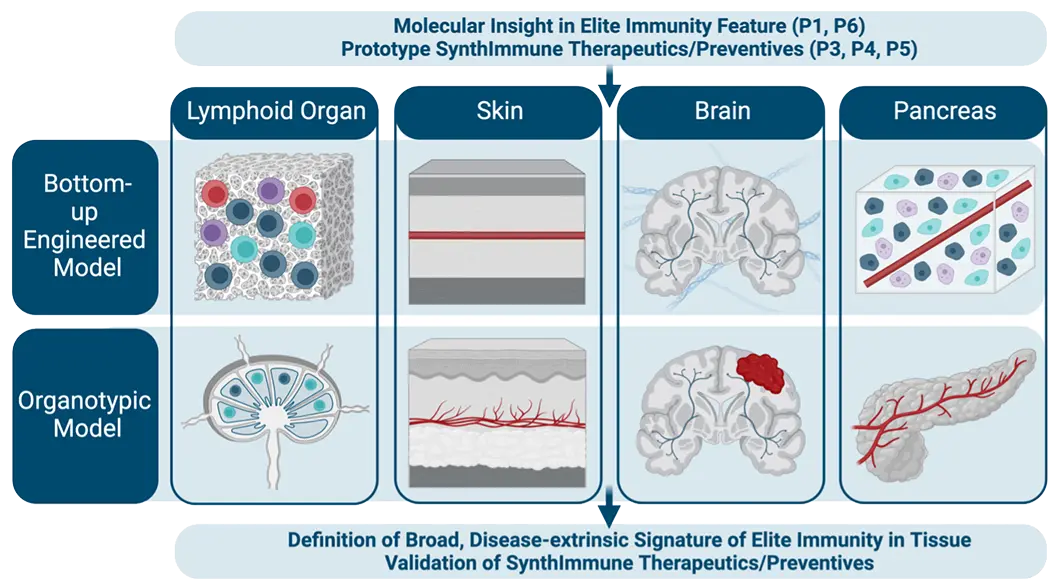
Project 3: Nanotechnology-based Therapeutics and Vaccines
The specific aims of P3 are the definition of key parameters of inducing antigen-specific immune responses as well as the modulation of immune cell mechanics.

Prod. Dr. Hedda Wardemann
Email:
h.wardemann@dkfz-heidelberg.de
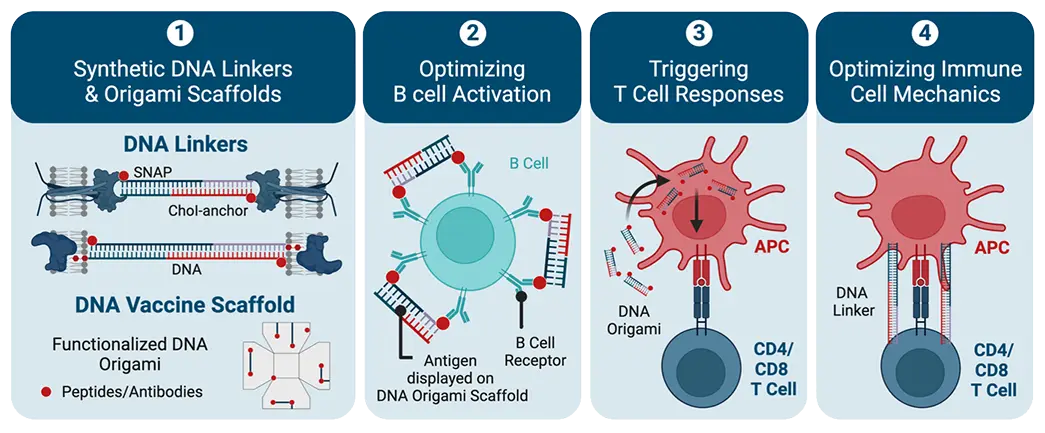
Synthetic DNA linkers and nucleic acid origami scaffolds will be used to induce and optimize immune reactions.
Nucleic acid scaffolds loaded with optimized antigens (1) will be used to maximize B cell activation (2) and, in combination with innate immune triggers, to induce T cell responses (3).
DNA linkers with tunable stiffness in combination with designed proteins will optimize immune cell communication (4).
Project 4: Engineering Targeting and Delivery
The specific aims of P4 are the achievement of selective targeting to cells of interest as well as the engineering of efficient cargo loading and unloading.
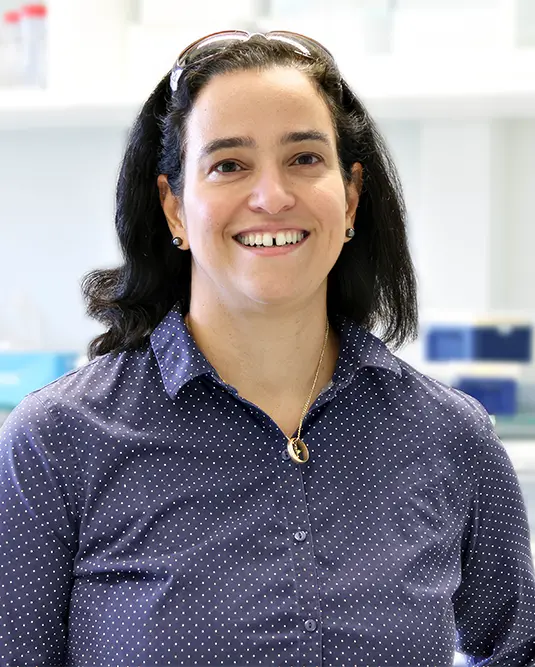
Prof. Dr. F. Nina Papavasiliou
Email:
n.papavasiliou@dkfz-heidelberg.de
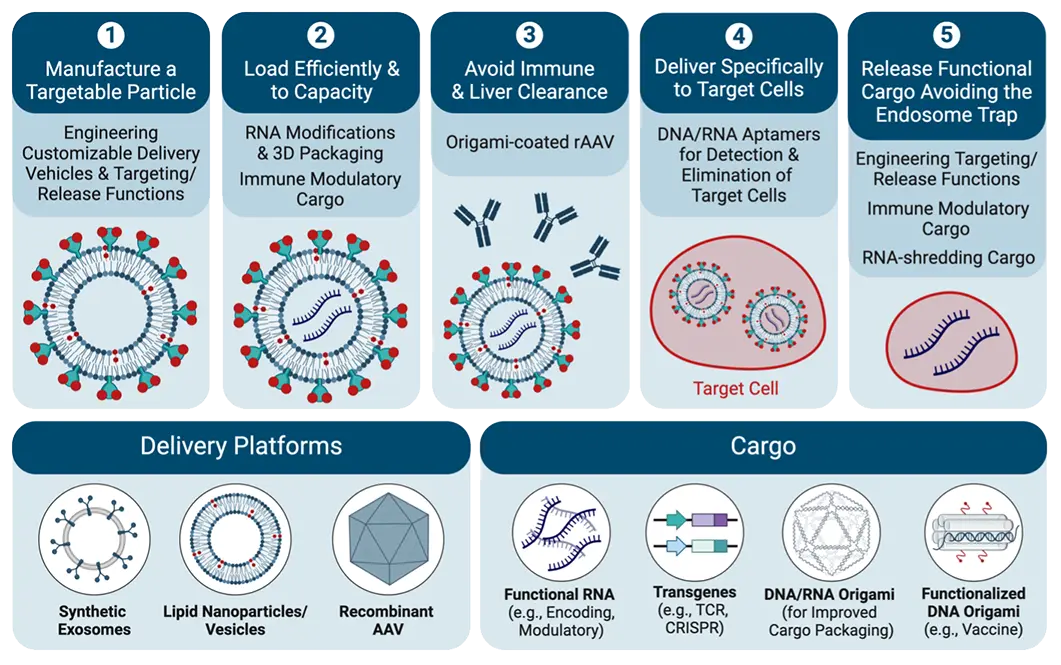
Modular delivery platforms for immune engineering.
Top: A Challenges in the synthetic vehicle delivery field (steps 1-5).
Bottom: We are envisioning three delivery platforms that can be loaded with different cargo, from functional RNA, to transgenes in DNA or RNA form, to functionalized origami structures for the purposes of selective targeting, choice of entry mechanisms, and the delivery of multiple cargo molecules.
Project 5: Towards Synthetic Immune Effector Cells
The specific aims of P5 are the engineering of synthetic immune effector cell modules capable of target cell recognition, computation and cytotoxic response as well as the integration of modules, improvement of efficacy of synthetic immune effector cells and adaptation to different types of diseases by directed evolution.
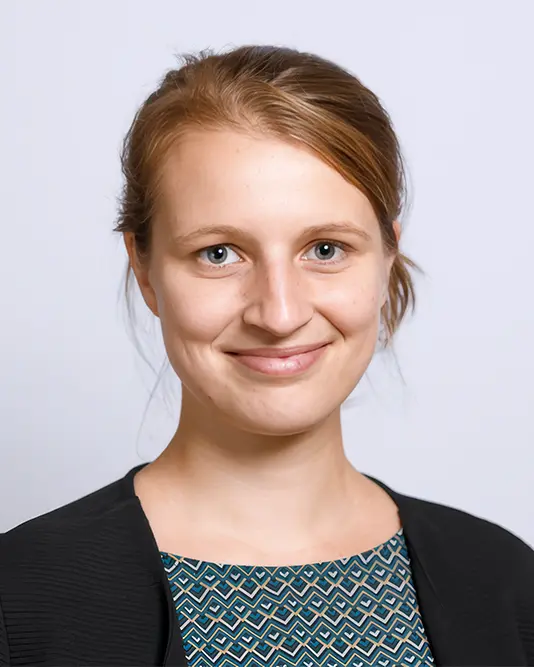
Prof. Dr. Kerstin Göpfrich
Email:
k.goepfrich@zmbh.uni-heidelberg.de
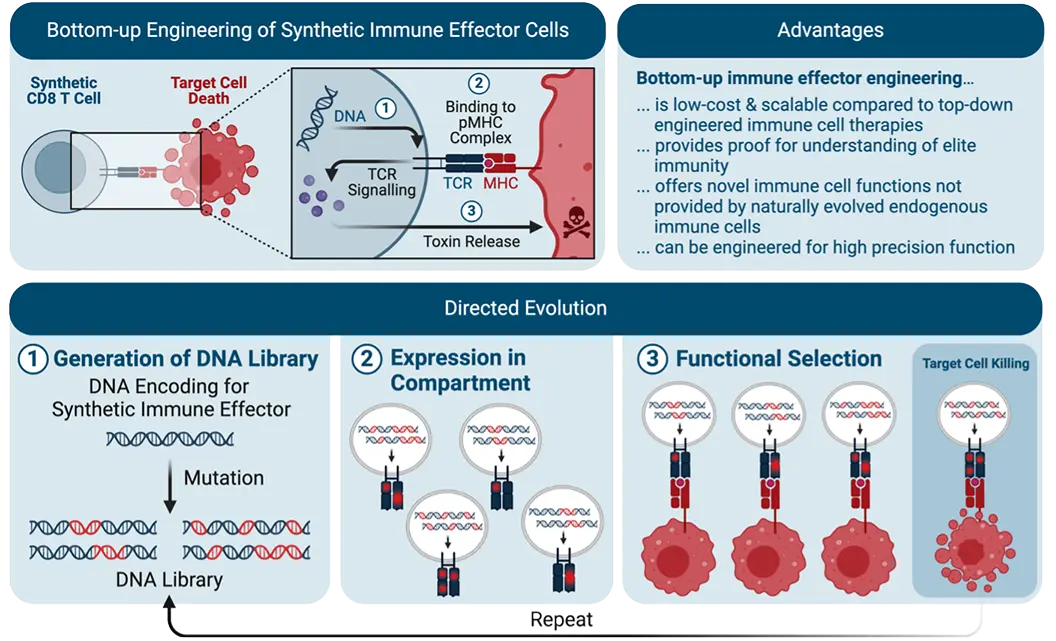
Engineering (top left), advantages (top right) and strategy for directed evolution of synthetic immune effector cells (bottom, steps 1-3).
Project 6: Computational Modelling for Prediction and Validation of Key Parameters of Immunity
The specific aims of P6 are the establishment of bioinformatic data analysis pipelines, learning of molecular and cellular patterns of elite immune functions, prediction of molecular interactions and integrative modeling of immune dynamics.
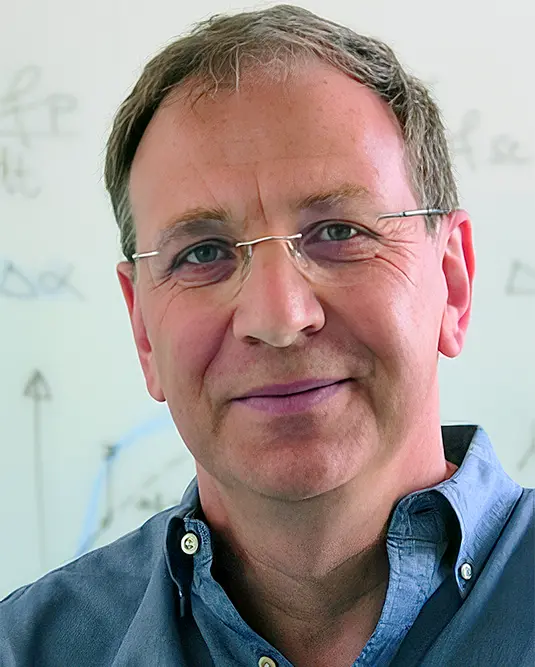
Prof. Dr. Thomas Höfer
Email:
T.Hoefer@Dkfz-Heidelberg.de
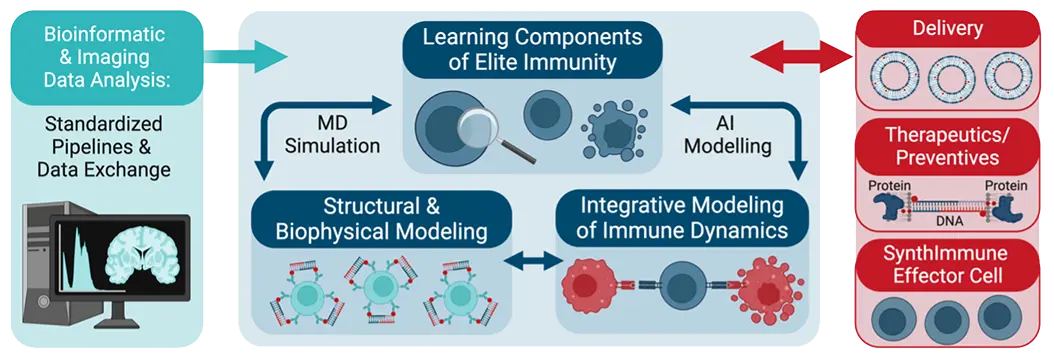
Interactive computational work program, linking AI/machine learning, structural modeling and integrative dynamical modeling to generate experimentally testable predictions, with standardized data analysis pipelines as basis.
Project 7: Ethics and Implementation
The specific aims of P7 are setting the stage for understanding terminology and professional practice, assessing risks and benefits to help launch early clinical trial and paving the way for societal transformation.
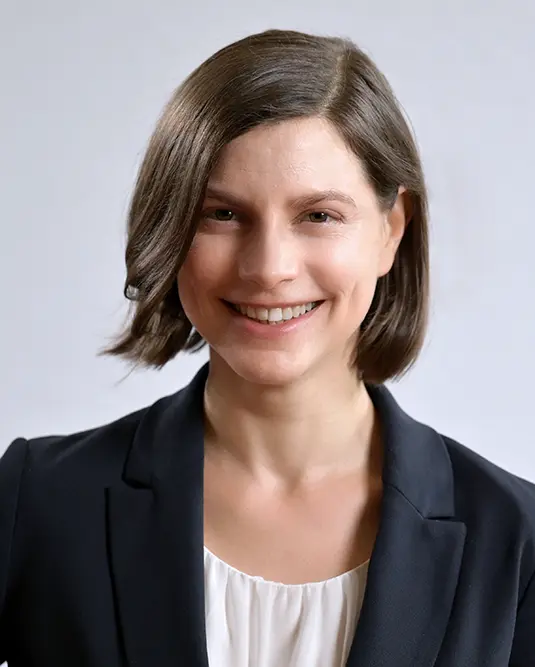
Prof. Dr. Nora Heinzelmann
Email:
nora.heinzelmann@uni-heidelberg.de
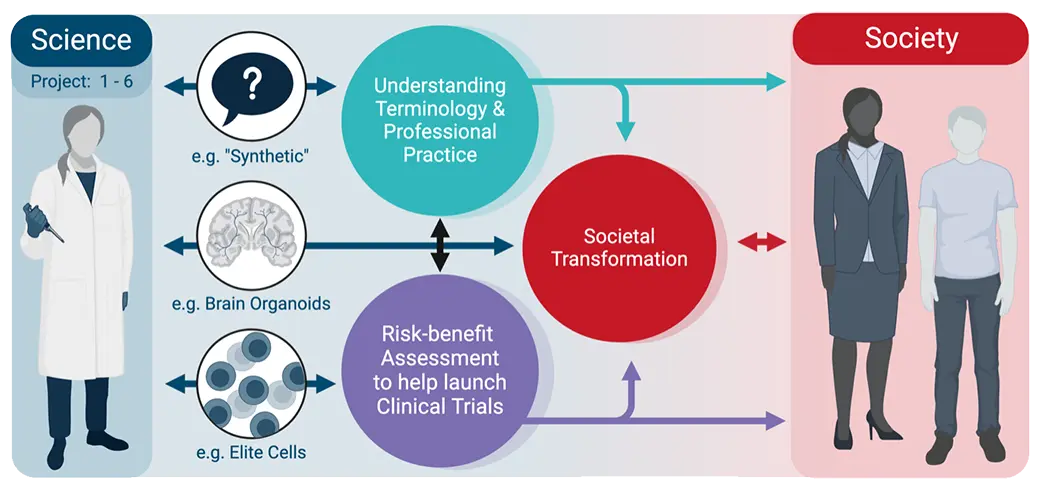
Overview of P7: Ethics and implementation as a bridge between scientific projects and society.